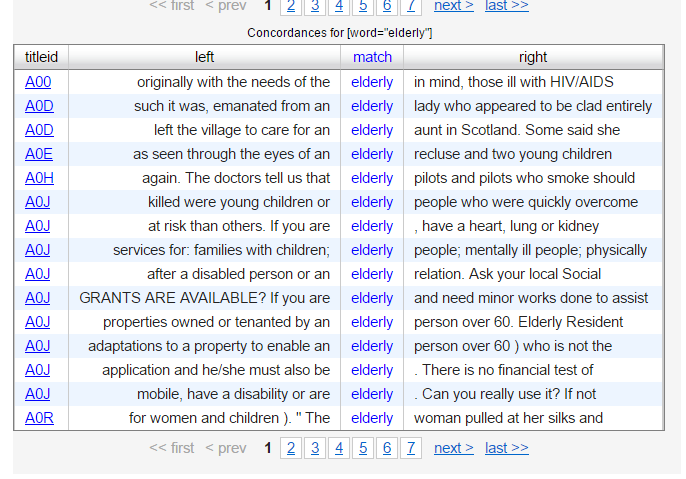Over the summer, while everyone else was enjoying themselves I was ruing the day I decided to look at grit (Duckworth, 2007) for my Master’s dissertation. I decided it’s unworkable so you get to read about it here.

What is Grit?
Grit is so difficult to define that it takes Duckworth (2016) the best part of a book to describe it adequately. Grit is the orientation of short-term goals toward one’s passions and long-term goals. It has also now mutated, taking on Dweck’s (1996) Growth Mindset, Csikszentmihalyi’s (1990) Flow, Ericsson and Pool’s (2016) Deliberate Practice and become a behemoth. One is left with the impression that only Duckworth truly understands what she means by the term ‘grit’. Grit has also been criticised for not being substantially different to conscientiousness (Kamenetz, 2016). Even Duckworth and Quinn (2009) acknowledge that:
Grit is similar to one Conscientiousness facet in particular, achievement striving, which is measured with items such as “I’m something of a ‘workaholic”’ and “I strive for excellence in everything I do” (Costa & McCrae, 1992a). We believe grit is distinct from achievement striving in grit’s emphasis on long-term goals and persistence in the face of setbacks. However, further research is needed to determine the relationships between grit and other facets of Big Five Conscientiousness.
(Duckworth and Quinn, 2009, p. 173.)
Grit does appear to be lauded, particularly in the USA, for being a commonsense approach to teaching and learning. I do not think this is a good thing. The Grit Score, a short, subjective, Likert-scaled questionnaire, is being used by teachers and learners to assess learners’ grit. One problem here is the weight of the scoring and the disparity between teachers’ and learners’ perceptions. When searching the literature I found nothing. The fact that grit is being used as a magic bullet for the school system’s ills is also worrisome when one might consider the least advantaged actually attending school being a gritty act in itself. Yet, it is these children with poverty-caused cognitive overload (Mani et al, 2013) who will be labelled ‘least gritty’. Duckworth has bemoaned this, much like Frankenstein died at his own monster’s hand.
What negative effects are present? Well, we have teachers buying in to a new orthodoxy dressed up as science, where learners score themselves on how they tend to stick with certain habits. If the teacher is scoring them, so much the worse due to the likelihood of other factors making their way into the scores, such as warmth toward the learners of even empathy towards them. This grit then is used to blame learners or anything but the system, including curricula and syllabi. To me, grit is simply another tool for attacking the poor and the other. They might not be as gritty and it provides an excuse for not targetting financial resources in the classroom, such as teaching assistants, smaller class sizes or taking time to reflect on whole-school issues such as homework, which can effect some learners who may be primary carers. As Thomas (2013) states, “the dirty little secret behind ‘no excuses’ and ‘grit’ is that achievement is the result of slack, not grit.” However, if a lack of achievement can be put down to intrinsic factors within learners, then it provides grounds for ignoring them.
In language teaching, progress is known not to be cumulatively acquired (Lightbown, 1985) yet when language is assumed to be a skill acquired like the learning of facts, it may appear that there is not enough work being done by learners. In adult EFL, language learning may not be the most important part of a learner’s life; even in ESOL, when learners may have to adjust to living in a new country, community and culture, integrative motivation (Gardner & Lambert, 1972) may be lacking. To assume that everyone in a community shares the same values of utility is unwise; to assume language learners progress through stages at the same rate, with the same goals and motivational orientations is to ignore literature and evidence in the classroom.
All of this grit and Growth Mindset then, seems to lend itself to a laissez-faire attitude in the classroom, where what is taught is what is learned, with learners not progressing at the same rate somehow deficient and lacking gumption to catch up. This characterises the grammar syllabus of textbook ELT. However, if one eschewed that, and taught learners English as opposed to teaching English as a subject, one need not abide by or pay lip service to such ideas.
Grit, Growth Mindset and SLA
There is, so far, no research linking grit nor Growth Mindset and SLA. There is research linking motivation, particularly long-term motivation, to SLA. Dweck’s work thus far has looked at problem solving in puzzles yet it may prove to be useful in decreasing the effects of the frequently observed slump in intermediate-level language learners’ development (find and cite).
Dörnyei’s (2009) work on motivational selves has elements of learners orienting themselves toward long-term goals, expectations of others (such as schools, parents, bosses) and visualisation of what would be a possible worst-case scenario if they did not study. This is, in my opinion, compatible with grit but has the benefit of not being burdened with the unnecessary accoutrements of highly subjective data from questionnaires for groups; it is personal.
Duckworth (2016) also talks about building gritty communities yet what if one is alienated from the community of sees oneself as unintegrated in the target community? Seeing as grit is passion and perseverance for a goal, essentially personal, grit may not be the best paradigm to apply to the EFL/EAL/MFL classroom in a compulsory school setting.
Furthermore, developing grit may be an irrelevance. As Norton Peirce (1995) demonstrates in her work with ESL learners in Canada, learners are driven toward communication when needs arise, whether there may be negative affective factors in the immediate environment. This need can drive learning, with Martina, one of Norton Peirce’s learner-correspondents providing anecdotal evidence regarding problems in a part-time job:
In the evening I asked my daughter what I have to tell the customer. She said ‘May I help you’ and ‘pardon’ and ‘something else.’ When I tried first time to talk to two customers alone, they looked at me strangely, but I didn’t give up. I gave them everything they wanted and then I went looking for the girls and told them as usually only ‘cash’. They were surprised but they didn’t say anything.
(Norton Peirce, 1995, p.247)
Rather than nebulous ideas of how to teach or foster grit, self-regulative strategies (Oxford, 2013) could provide a jumping-off point for more effective self study or use of self-access facilities. Such strategies may foster greater motivation by providing learners with alternative ways of working than their current preferences.
One caveat here is that I think grit should be researched; I just don’t think there is a place for it to be brought into classes on a whim due to TED talks bringing a superficial informative lacquer to a few minutes of distraction.
If you disagree, by all means comment. I would love to know more, having spent ages with this.
References
Csikszentmihaly, M. (1990) Flow: The Psychology of Optimal Experience”, New York: HarperCollins ebooks.
Denby, D. (June 21st, 2016) The Limits of Grit. The New Yorker. Retrieved August 22nd, 2016 from: http://www.newyorker.com/culture/culture-desk/the-limits-of-grit
Dörnyei, Z. (2009). The L2 Motivational Self System. In Z. Dörnyei & E. Ushioda (Eds.), Motivation, language identity and the L2 self (pp. 9-42). Bristol: Multilingual Matters.
Duckworth, A. L., Peterson, C., Matthews, M. D., & Kelly, D. R. (2007). Grit: Perseverance and passion for long-term goals. Journal of Personality and Social Psychology, 92(6), 1087-1101.
Duckworth, A. L. & Quinn, P. D. (2009). Development and validation of the Short Grit Scale (Grit-S). Journal of Personality Assessment, 91(2), 166-174.
Duckworth, A. L. (2016) Grit: The Power of Passion and Perseverance. New York: Simon & Schuster.
Dweck, C. (2006). Mindset: The new psychology of success. Random House
Ericcson, A. & Pool, R. (2016) Peak: Secrets from the New Science of Expertise. Boston: Houghton Mifflin, Harcourt.
Gardner, R. C. & Lambert, W. E. (1972) Attitudes and Motivation in Second Language Learning. Rowley, MA: Newbury House.
Kamenetz, A. (May 25th, 2016) MacArthur ‘Genius’ Angela Duckworth Responds To A New Critique Of Grit. Retrieved August 22nd, 2016 from: http://www.npr.org/sections/ed/2016/05/25/479172868/angela-duckworth-responds-to-a-new-critique-of-grit
Lightbown, P. M. (1985) Great Expectations: Second language acquisition research and classroom teaching. Applied Linguistics, 6(2), 173-189.
Mani, A. et al (2013) Poverty Impedes Cognitive Function. Science, 341,(6149), pp. 976-980
Norton Peirce, B. (1995) Social Identity, Investment and Language Learning. TESOL Quarterly 29/1: 9-31. In Seidlhofer, B (ed.) (2003) pp. 236-255. Oxford, New York: OUP.
Oxford, R (2013) Teaching and Researching Language Learning Strategies. Abingdon: Routledge.
Thomas, P. L. (November 10th, 2013) The Poverty Trap: Slack, Not Grit, Creates Achievement. Retrieved August 22nd, 2016 from: https://radicalscholarship.wordpress.com/2013/11/10/the-poverty-trap-slack-not-grit-creates-achievment/
Further Reading
Sheppard, R. (2016) Grit, Resilience and Conation in Adult Esol
Sheppard, R. (2016) Grit, Resilience and Conation in Adult Esol Part II


